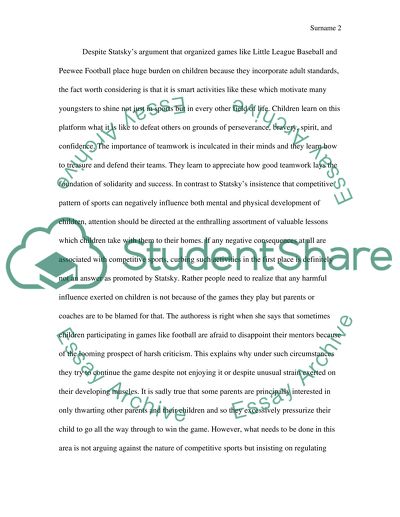Cite this document
(“The effects of competitive sports on young minds Essay”, n.d.)
Retrieved from https://studentshare.org/english/1487406-persuasive-essay
Retrieved from https://studentshare.org/english/1487406-persuasive-essay
(The Effects of Competitive Sports on Young Minds Essay)
https://studentshare.org/english/1487406-persuasive-essay.
https://studentshare.org/english/1487406-persuasive-essay.
“The Effects of Competitive Sports on Young Minds Essay”, n.d. https://studentshare.org/english/1487406-persuasive-essay.


